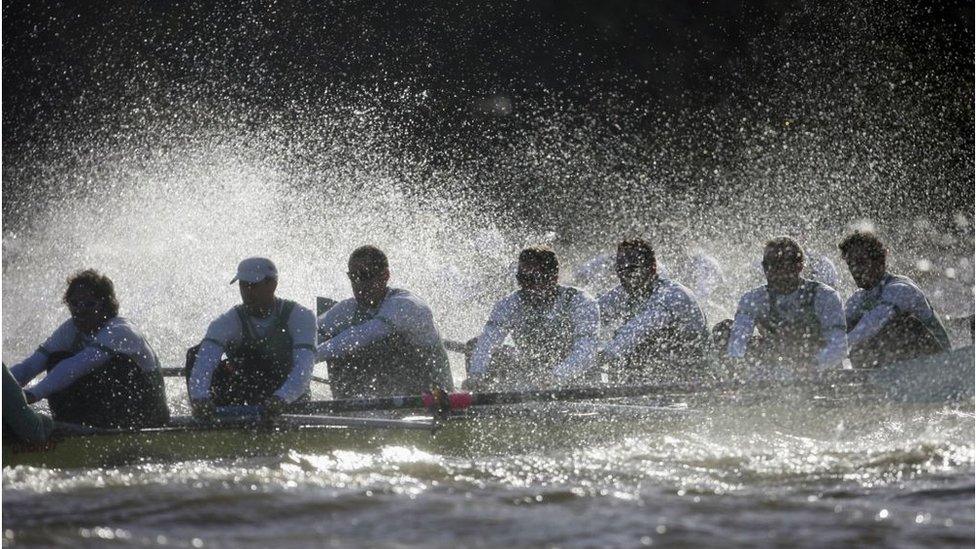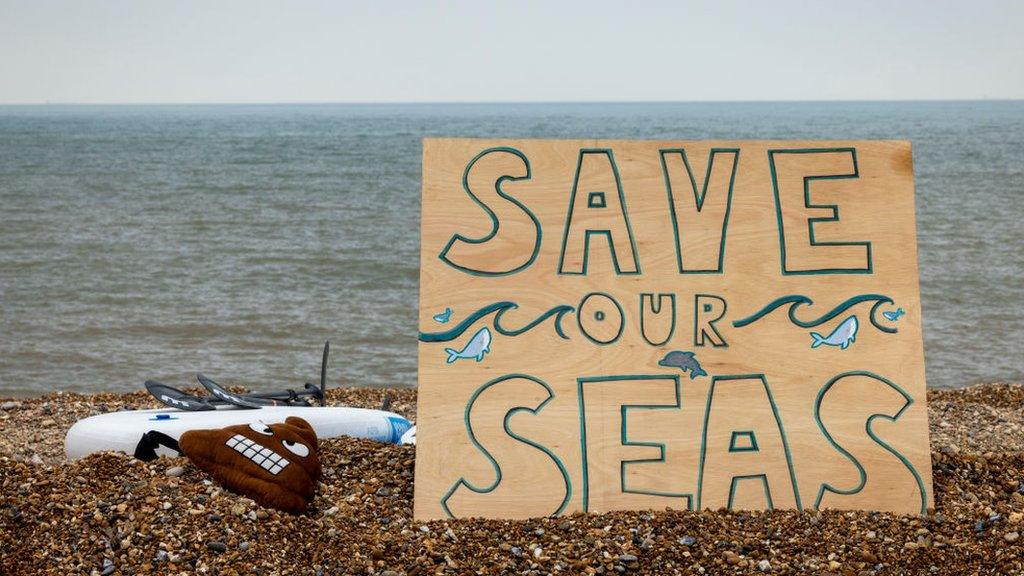River Thames pollution 'devastating' - Oxford wild swimmer
- Published
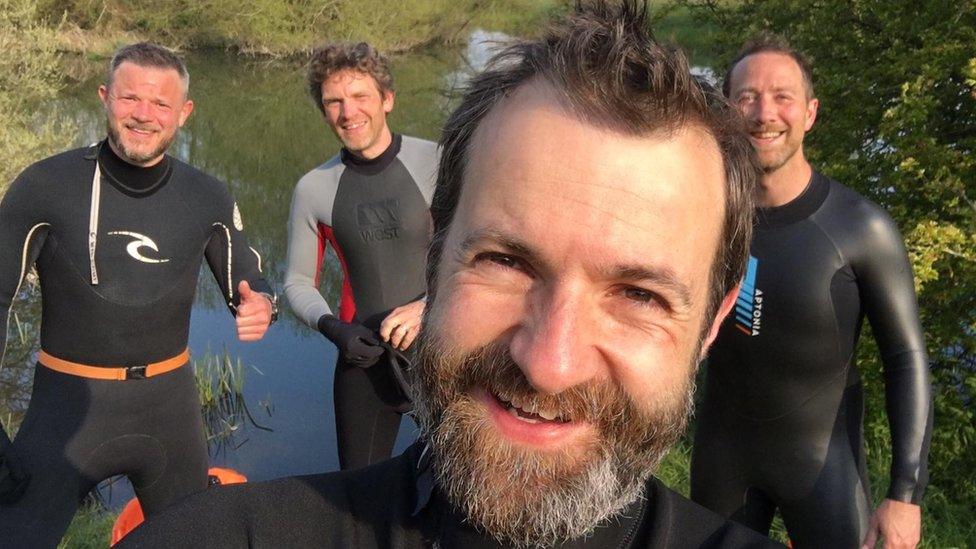
Kit Yates regularly swims in the Thames in Oxford
The results of a test into the water quality of the River Thames are "devastating", a wild swimmer has said.
Bangor University analysis, commissioned by television naturalist Steve Backshall, recently found high levels of potentially harmful bacteria in the river.
Kit Yates, who swims in the Thames in Oxford, said the results were "disappointing, but not surprising".
Thames Water said it was taking action to improve the rivers health.
Mr Yates said: "Numbers have dropped off in our group, partly as a result of hearing the experiences of other people who have got seriously ill from swimming in the river - it's something that we think about quite carefully each time we go."
"We're conscious of what's going into the river, and we know when sewage companies have been pumping large amounts of untreated sewage into the water largely because we can actually smell the detergent in the water."

Mr Yates said the Bangor University analysis was "devastating"
The Bangor University analysis of water taken downstream from Little Marlow Sewage Treatment Works, near the border between Berkshire and Buckinghamshire, found high levels of norovirus and E. coli.
Steve Backshall, who lives on the river, said the results were "mind-blowing and terrifying in equal measure", whilst scientists described it as "a death potion" for the river that "could lead to total annihilation of the ecosystem".
Responding to the results, Mr Yates said: "Obviously it's really disappointing, both from the point of view of people who are using the river, but also from the point of view of of the natural environment."
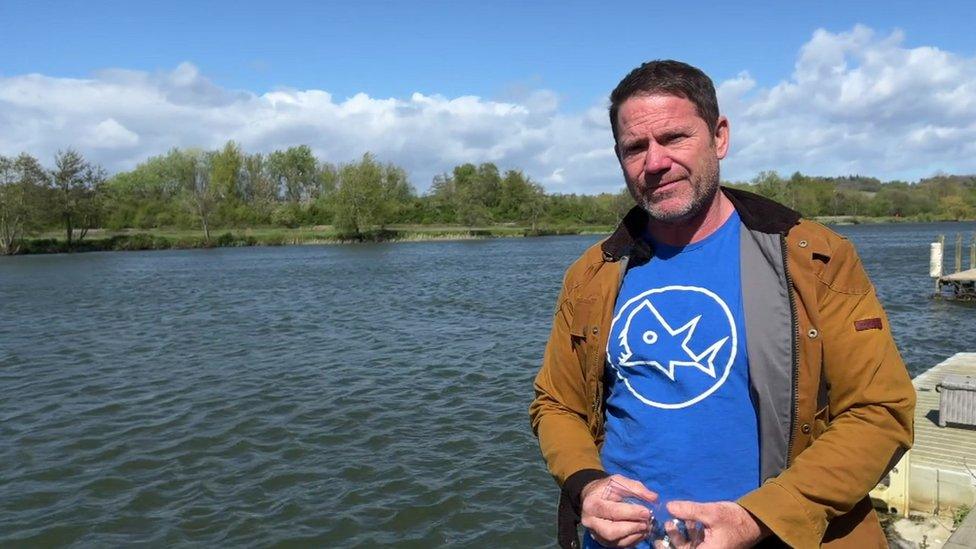
Steve Backshall said the test results were "terrifying"
In a statement, Thames Water said: "We regard all discharges as unacceptable and taking action to improve the health of rivers is a key focus for us. We appreciate how much our waterways are loved and we want everyone to be able to enjoy them."
"There are other potential hazards in watercourses. These include runoff from farming, industry and roads, and bacteria and parasites from livestock and other animals. This is why we support the government's advice, external on open water swimming."
"We have published plans to upgrade over 250 of our sites, in many cases this will improve performance and reduce the number of overflows during heavy rainfall," it added.

Follow BBC South on Facebook, external, X, external, or Instagram, external. Send your story ideas to south.newsonline@bbc.co.uk or via WhatsApp on 0808 100 2240, external.
- Published16 April 2024
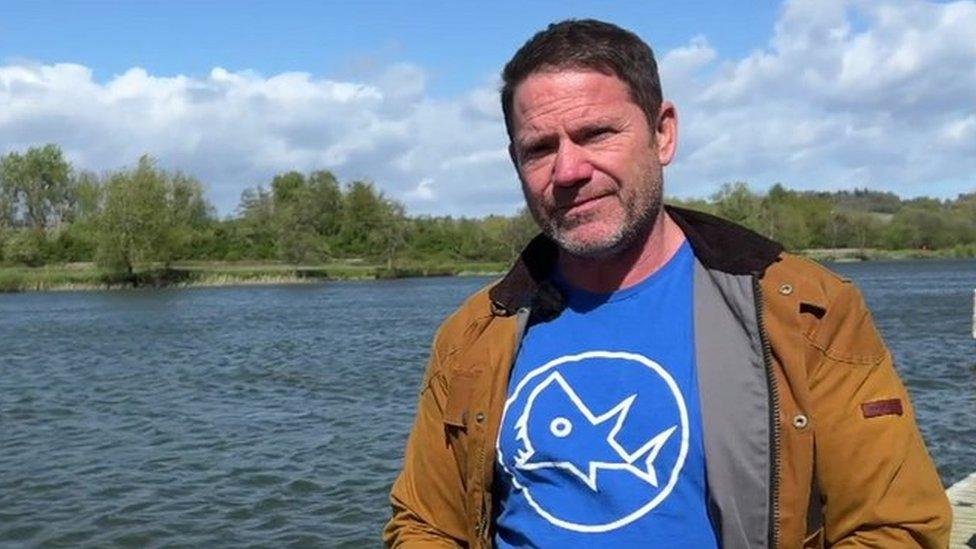
- Published27 March 2024
